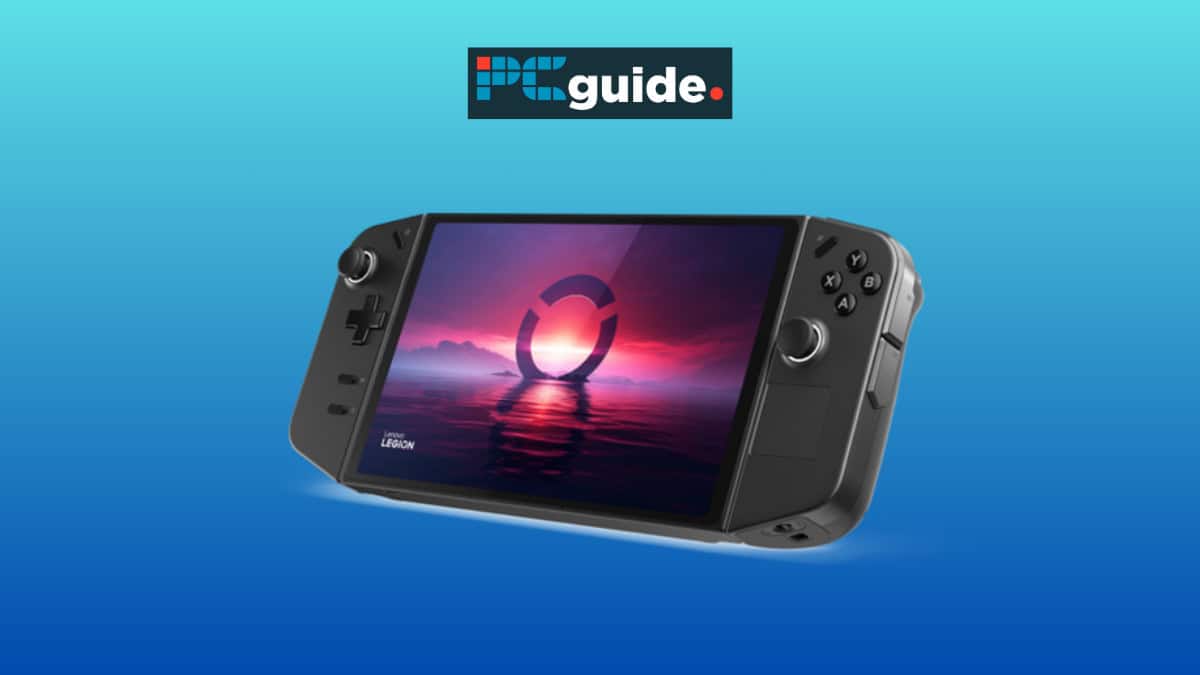Lenovo could be working on an affordable ‘Lite’ version of the Legion Go to compete with the ROG Ally

Table of Contents
It has been reported by Windows Central that Lenovo has a revised version of the Legion Go in the works. The Lenovo Legion Go “Lite” is expected to be cheaper than its non-lite variant and assumedly the less powerful of the two. The handheld gaming PC landscape is looking competitive at the minute, with ASUS set to release the ROG Ally X very soon, so it will be interesting to see what Lenovo has in store as they go in the opposite direction. Let’s take a closer look.
What would the Lenovo Legion Go “Lite” look like?
Specs for this product have not yet been confirmed however there is speculation surrounding what it might look like. It has been suggested that the Lenovo Legion Go “Lite” may feature a smaller screen, a simpler design, and lose the detachable gamepad. These ergonomic features will make it similar to other handhelds on the market at the minute, like the Nintendo Switch and ASUS ROG Ally, the former of which retains the detachable design.
Prime Day is finally here! Find all the biggest tech and PC deals below.
- Sapphire 11348-03-20G Pulse AMD Radeon™ RX 9070 XT Was $779 Now $739
- AMD Ryzen 7 7800X3D 8-Core, 16-Thread Desktop Processor Was $449 Now $341
- ASUS RTX™ 5060 OC Edition Graphics Card Was $379 Now $339
- LG 77-Inch Class OLED evo AI 4K C5 Series Smart TV Was $3,696 Now $2,796
- Intel® Core™ i7-14700K New Gaming Desktop Was $320.99 Now $274
- Lexar 2TB NM1090 w/HeatSink SSD PCIe Gen5x4 NVMe M.2 Was $281.97 Now $214.98
- Apple Watch Series 10 GPS + Cellular 42mm case Smartwatch Was $499.99 Now $379.99
- ASUS ROG Strix G16 (2025) 16" FHD, RTX 5060 gaming laptop Was $1,499.99 Now $1,274.99
- Apple iPad mini (A17 Pro): Apple Intelligence Was $499.99 Now $379.99
*Prices and savings subject to change. Click through to get the current prices.
To understand the difference in these upgrades, let’s take a look at what the current Lenovo Legion Go has to offer now. It features a 8.8-inch screen with a 2560×1600 resolution and comes with an AMD Ryzen Z1 (Phoenix) APU. This APU offers up to 8 Zen 4 cores and 12 RDNA 3 compute units. Lenov doesn’t currently offer a version with the less expensive Z1 non-Extreme version (6 Zen 4 cores and 4 RDNA 3 GPU compute units) so perhaps with the “Lite” revision we may see something of the sort.

How will it compete with the ROG Ally?
There are definite upgrades that need to be made on the Legion Go, that a “Lite” revision could benefit from. Currently, there is no driver that enables frame generation on the product. However, competitors within the handheld community do, for example, the ROG Ally. It is possible for users to utilize third-party solutions, but it should definitely be something that Lenovo considers in the “Lite” refresh. Plus, the ROG Ally does indeed have a cheaper Z1 non-extreme version which could be what Lenovo aims to compete with.
With no confirmation from Lenovo itself, we’re uncertain as to when this product will arrive and how much it will cost. However, due to the speculation we’ve covered, including the smaller screen and less expensive APU, we can safely say that we expect the Lenovo Legion Go “Lite” to be priced lower than its non-lite counterpart, which currently retails for just under the $700 mark. Drop that down by maybe a couple hundred dollars and it’s a strong answer to the Ally.

